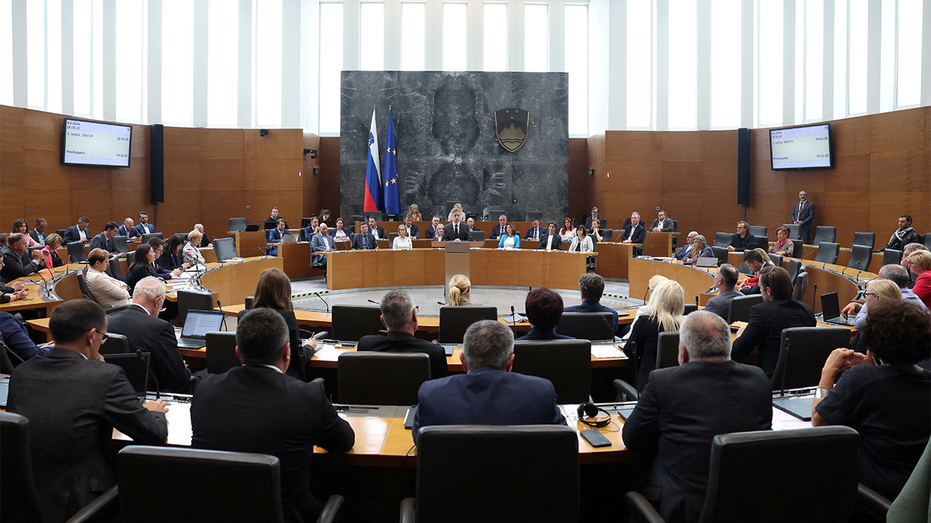📰 Slovenia approves law to legalize assisted dying for terminally-ill adults

Slovenia has become the first Eastern European country to legalize medically-assisted suicide for terminally ill adults, with the law passing after a parliamentary vote of 50 in favor, 34 against, and three abstaining. The legislation follows a national referendum where 55% of voters supported end-of-life autonomy. The law applies to mentally competent terminally ill adults experiencing unbearable suffering with no hope of improvement, excluding those with only mental illness. The process requires informed, voluntary, and repeated consent, possibly involving evaluation by multiple medical professionals. While hailed as historic, the law’s implementation will be delayed as detailed procedures and oversight mechanisms are still being developed.
In Delaware, the assisted suicide bill has been signed into law, making it the 11th state in the U.S. with such a statute. Despite being celebrated as a significant step, the law’s implementation will also be delayed as procedures and oversight mechanisms are finalized. A civil rights group opposed the law and plans to seek public support for a potential referendum to overturn it.
The New York Assembly has passed a bill to legalize assisted suicide for the terminally ill, following the lead of several other countries and states in the U.S. that have already enacted similar laws. The bill in New York still needs to clear the upper chamber of parliament before becoming law. Countries like Canada, Germany, Belgium, Switzerland, the Netherlands, Australia, and Colombia have also legalized assisted dying, with some U.S. states and Washington, D.C., permitting physician-assisted suicide.
📰 Rubio announces visa revocations on Brazilian judge for ‘political witch hunt’ against ex-president Bolsonaro

U.S. Secretary of State Marco Rubio announced visa restrictions on Brazilian Supreme Court Justice Alexandre de Moraes and his allies after the court issued search warrants against former President Jair Bolsonaro. Rubio criticized the court’s actions as a “political witch hunt” against Bolsonaro, citing concerns about censorship and persecution. Bolsonaro was prohibited from contacting foreign officials, using social media, or approaching embassies due to allegations of seeking interference from U.S. President Donald Trump. Trump, in turn, pressured Brazil to end the case against Bolsonaro, calling it a “witch hunt.” Bolsonaro denied plans to leave the country but expressed humiliation over wearing an ankle monitor. The former president sought to meet with Trump and discussed the situation with the top U.S. diplomat in Brazil. The court’s decision was upheld by a five-judge panel, with Moraes citing concerns about foreign interference in Brazilian courts and national sovereignty.
📰 Russian lawmakers claim WhatsApp is a national security threat, should prepare to leave the country

Russian lawmaker Anton Gorelkin, who oversees the country’s IT sector, warned that WhatsApp should be prepared to exit the Russian market as it may be listed as restricted software. He suggested that the state-backed messaging app MAX could benefit if WhatsApp, owned by Meta, were to leave. This comes after Facebook and Instagram, also owned by Meta, were banned in Russia following the country’s invasion of Ukraine in 2022. Russian President Vladimir Putin recently signed a law supporting the development of MAX to reduce reliance on foreign platforms like WhatsApp and Telegram. The Russian government is implementing legal amendments, including fines for accessing content deemed extremist, which has faced criticism for limiting journalistic freedom and opposition activities. Kremlin spokesperson Dmitry Peskov emphasized that all services must comply with Russian laws, hinting at the possibility of WhatsApp’s departure. Russia’s push for digital sovereignty has led to concerns about user privacy and potential manipulation of online activities through state-backed platforms. Putin’s directive to introduce further restrictions on software from “unfriendly countries” by September 1 could impact communication services like WhatsApp.
📰 Security guard’s ‘swift move’ stops determined anti-Israel agitator at Tour de France finish

A protester disrupted the Tour de France to oppose Israel’s participation, but was swiftly apprehended by security near the finish line. The protester was tackled and thrown back over the barrier into the crowd, as captured in video footage that went viral online. The incident occurred during Stage 11 of the race in southern France. The protester was wearing a shirt that said “Israel out of the Tour” and holding a keffiyeh, a symbol of support for the Palestinian cause. The protest was linked to the BDS movement, which had labeled the Israel Premier-Tech team as “Team Genocide” and called for non-violent demonstrations at major cycling events where the team competes. The BDS movement urged for more peaceful protests along the route of the Tour de France, which will conclude on July 27 in Paris.
📰 Pilot with ‘ideological motive’ steals small aircraft and disrupts major international airport operations

A stolen plane caused a security incident at Vancouver International Airport, leading to a temporary halt in operations and rerouting of nine incoming flights. The Cessna 172, operated by a single individual, landed safely after a 39-minute air traffic suspension, and the pilot was apprehended by the Royal Canadian Mounted Police. Air traffic control recordings revealed the alert about the hijacked aircraft and the uncertainty surrounding its intentions. The aircraft had been taken from Victoria International Airport and flown around 40 miles into Vancouver’s airspace. The pilot, identified as 39-year-old Shaheer Cassim, now faces a hijacking charge and is believed to have had an “ideological motive” to disrupt air traffic.
0개의 댓글